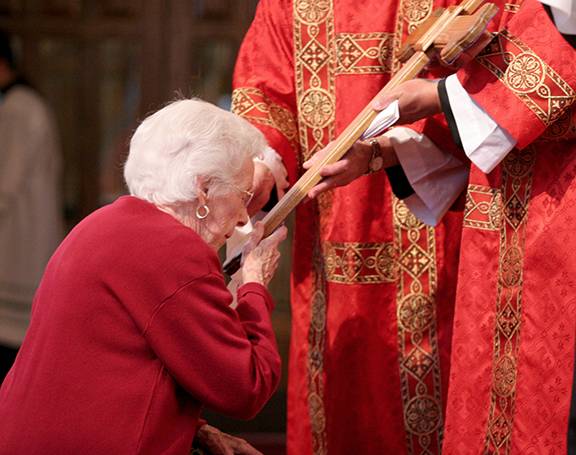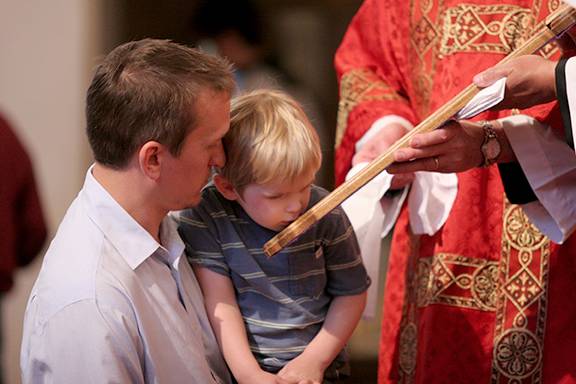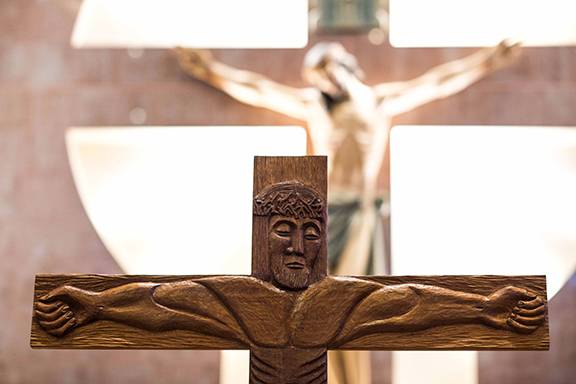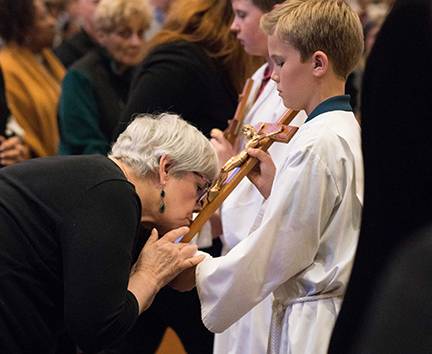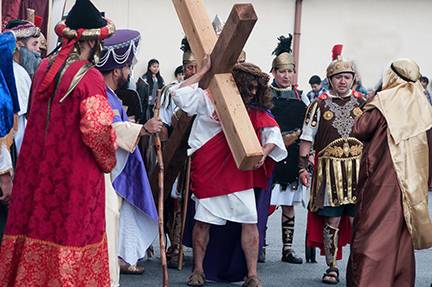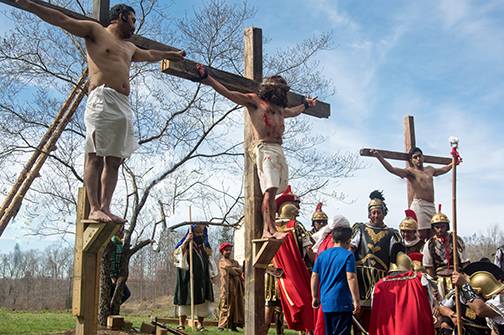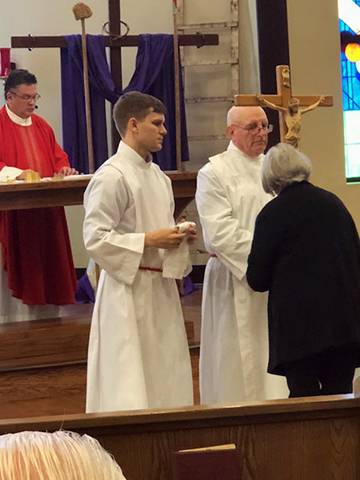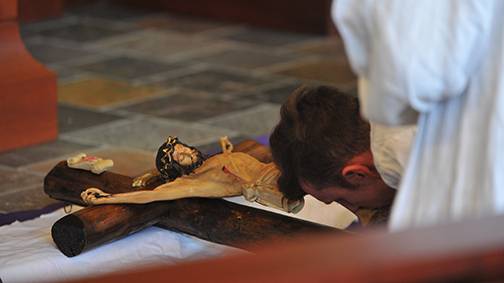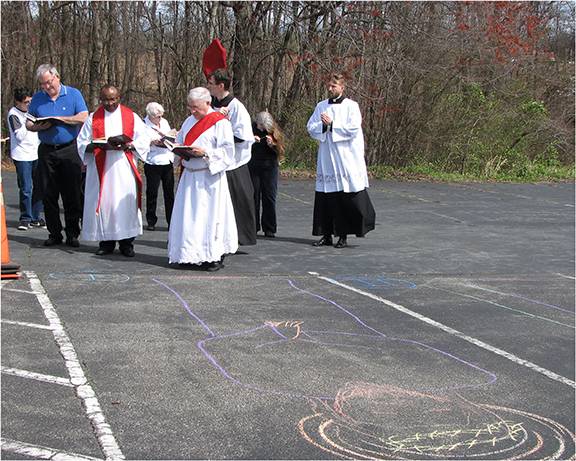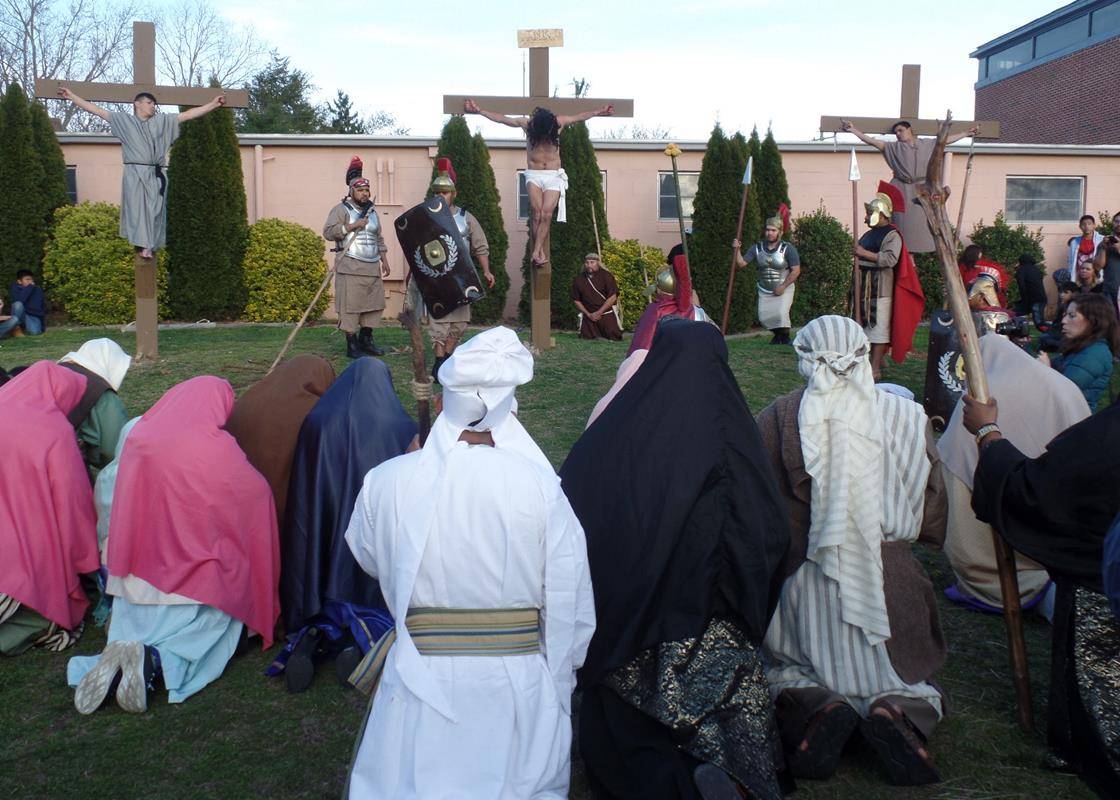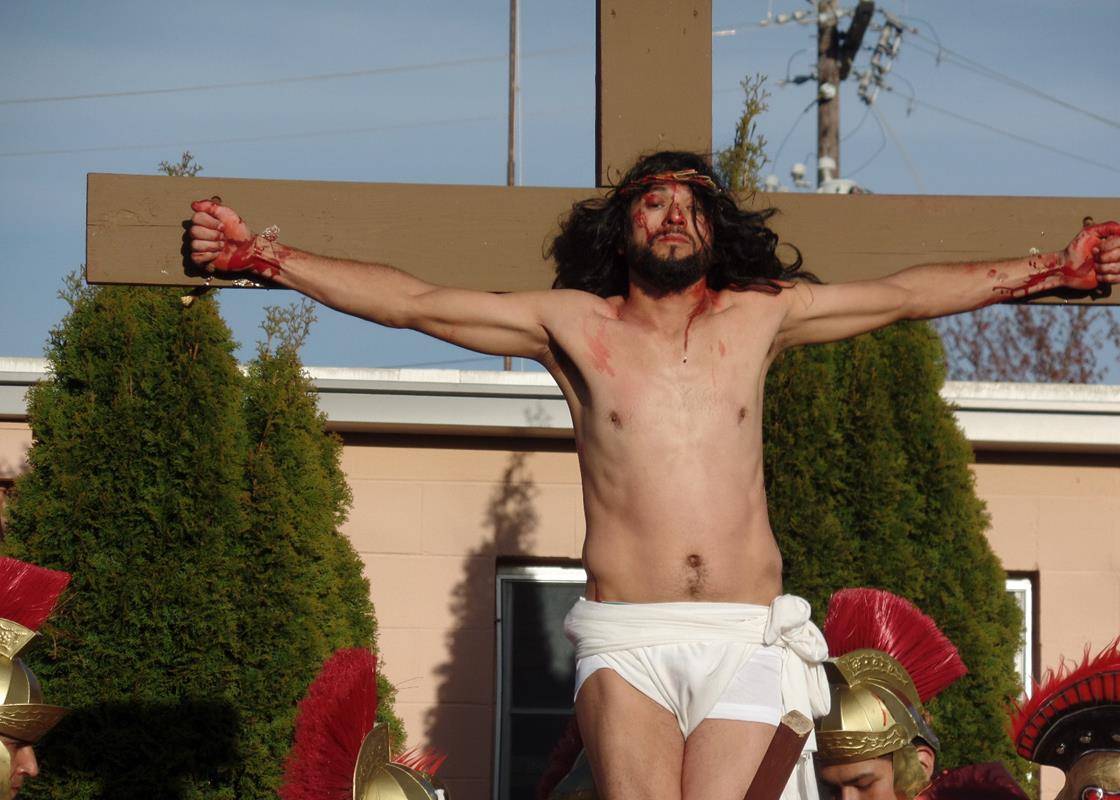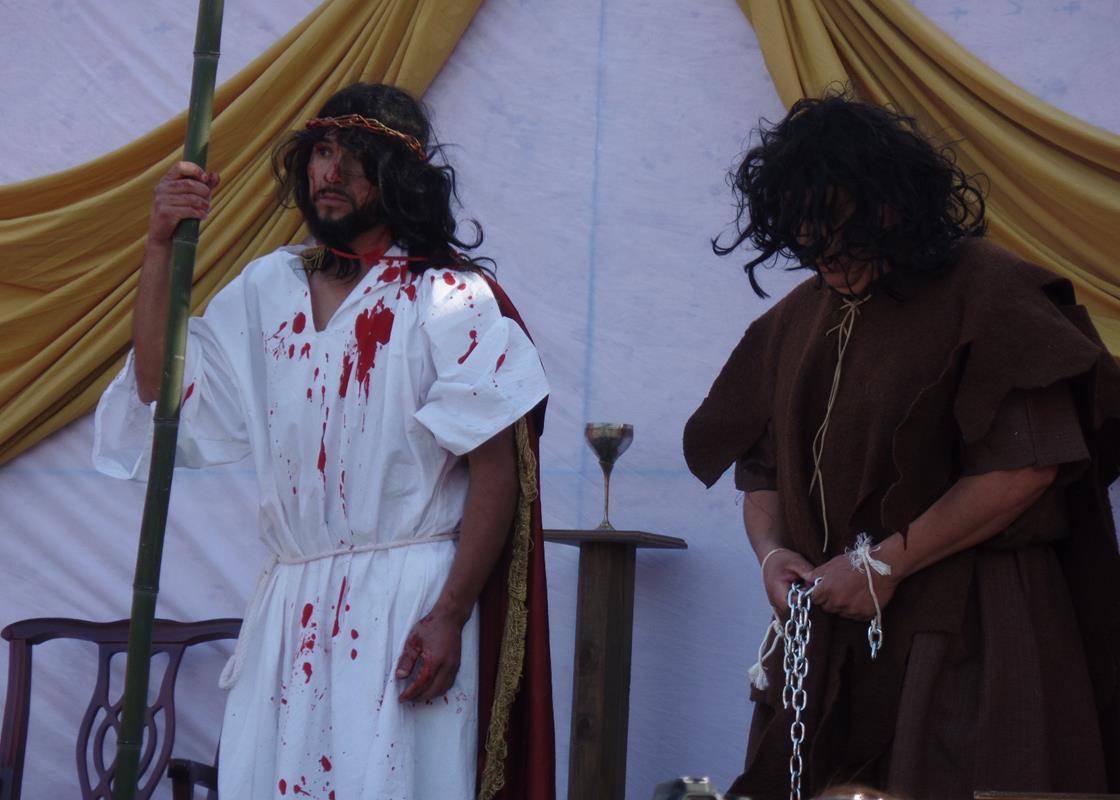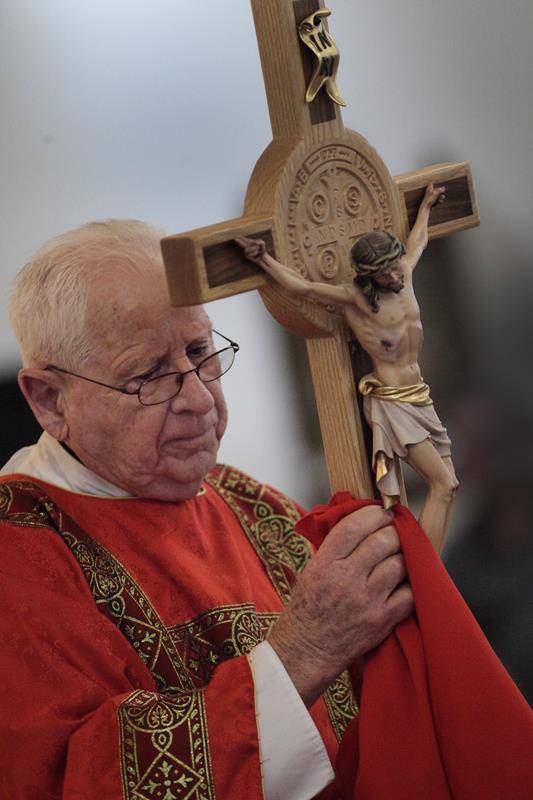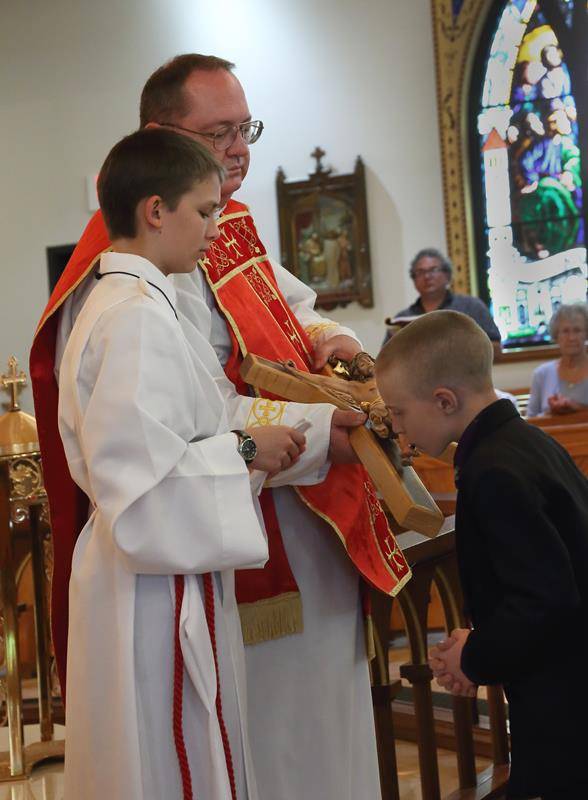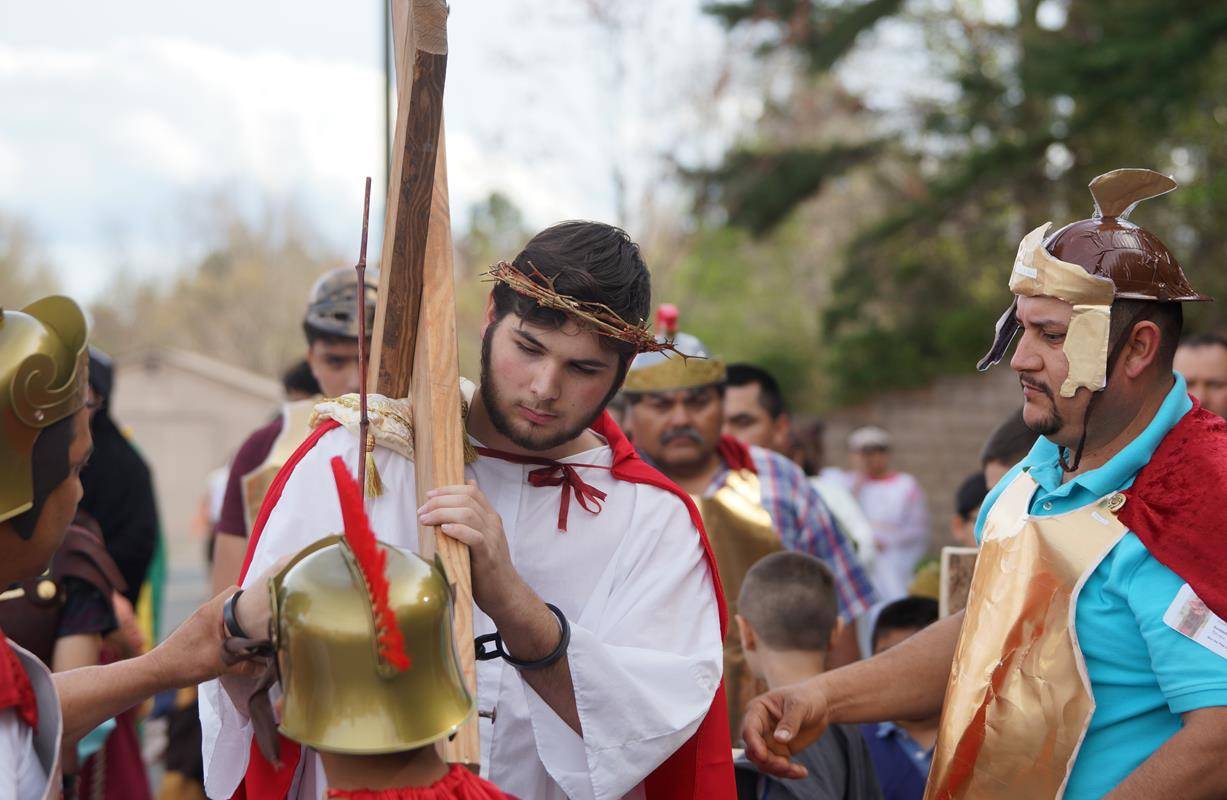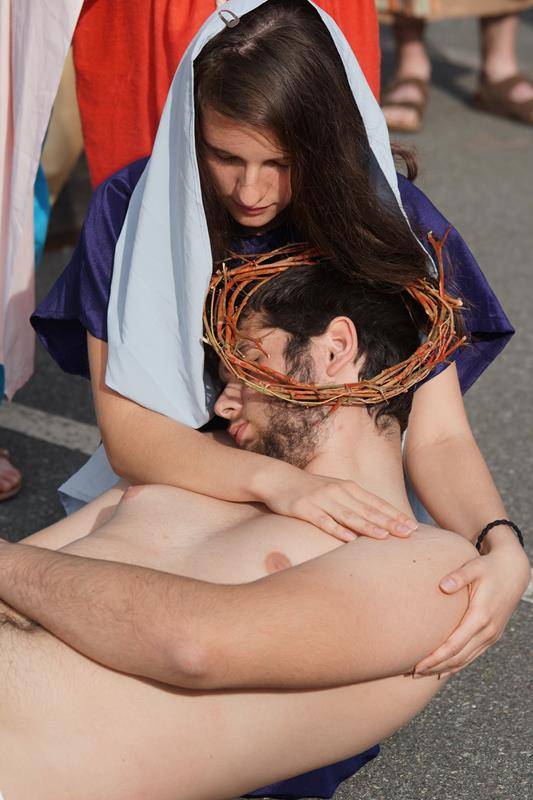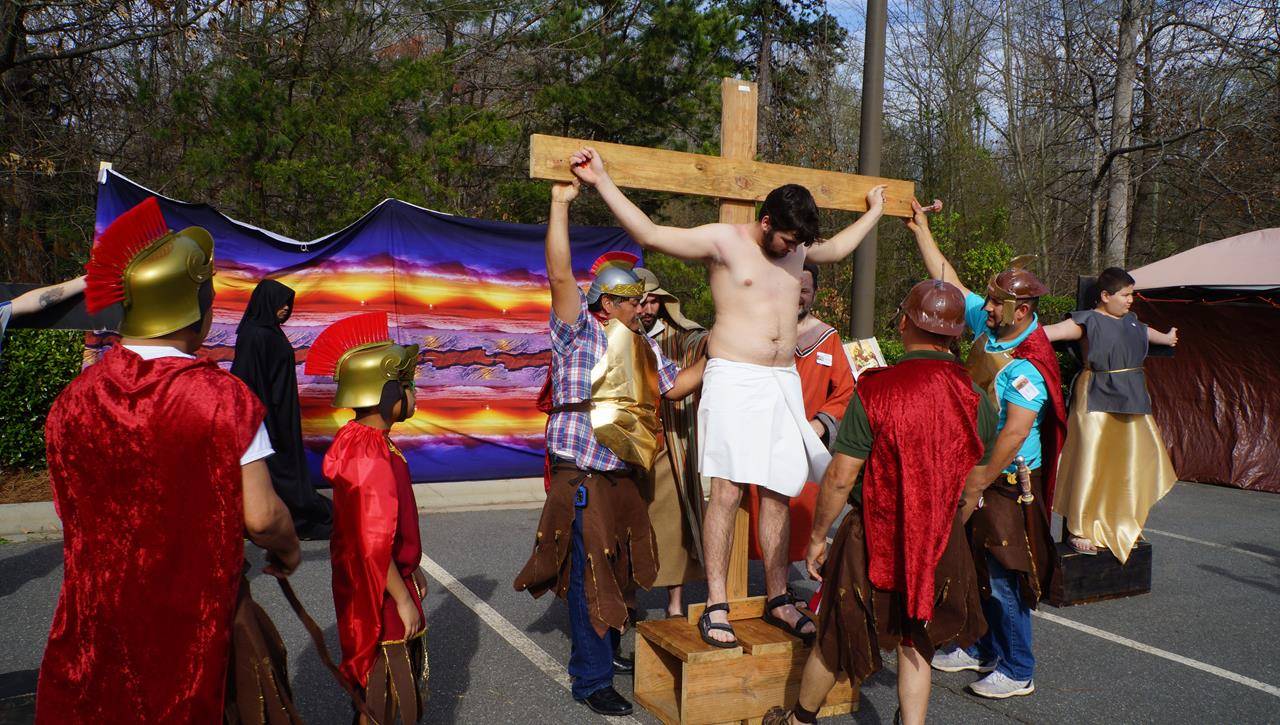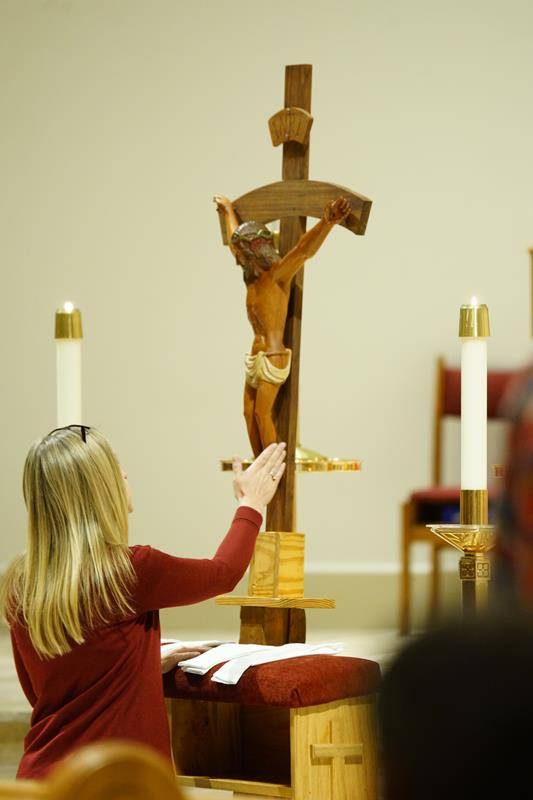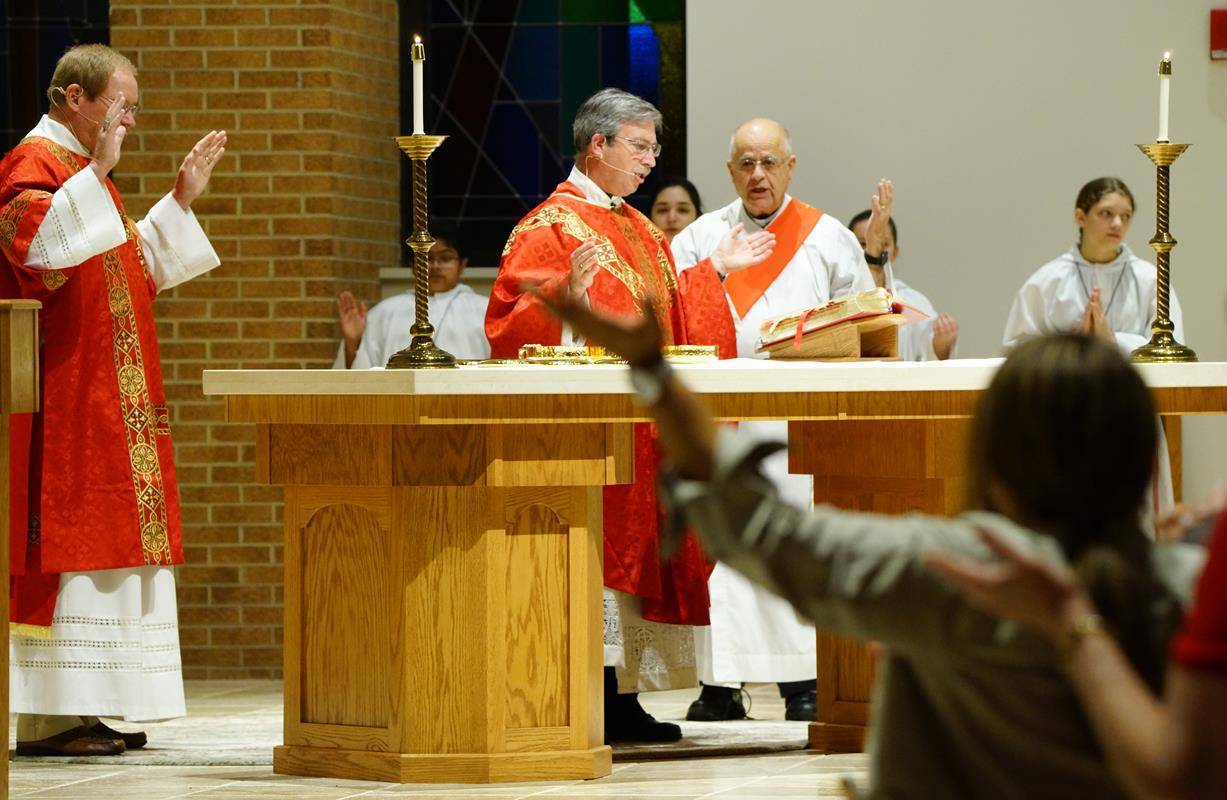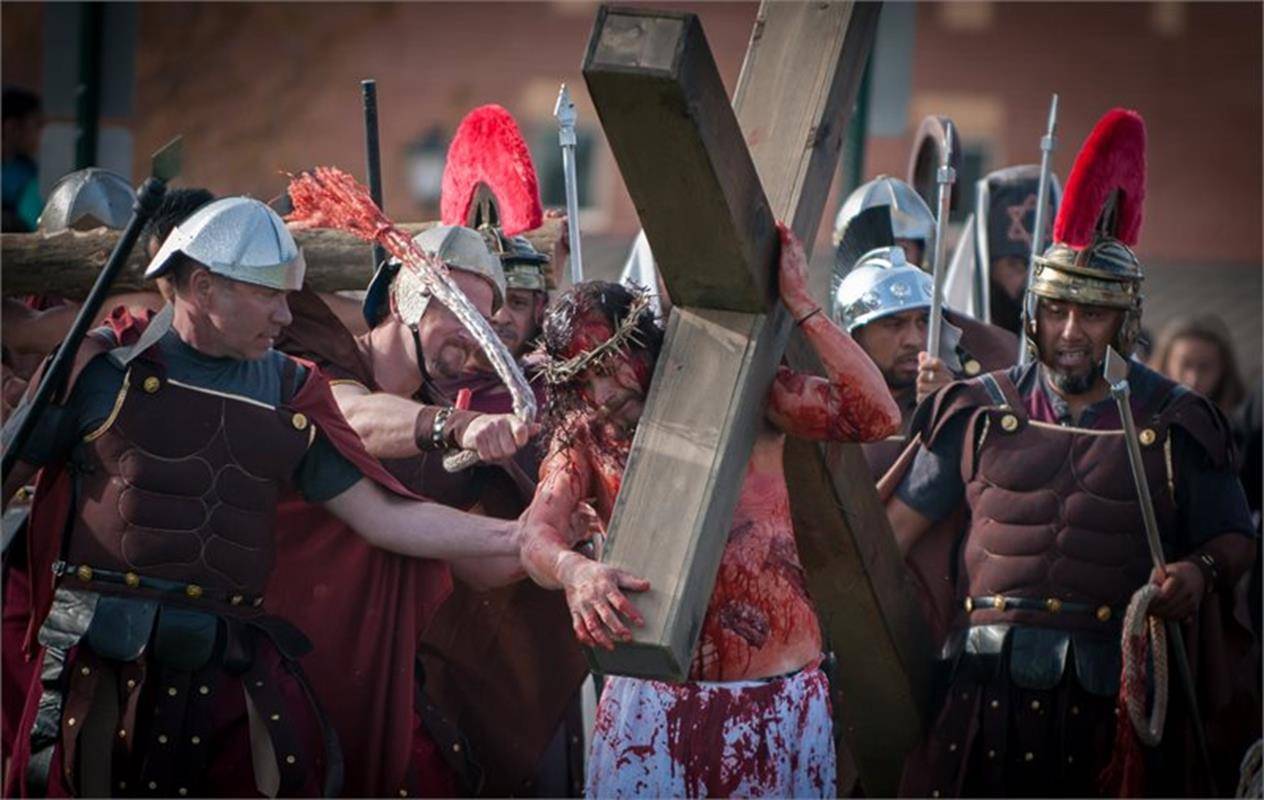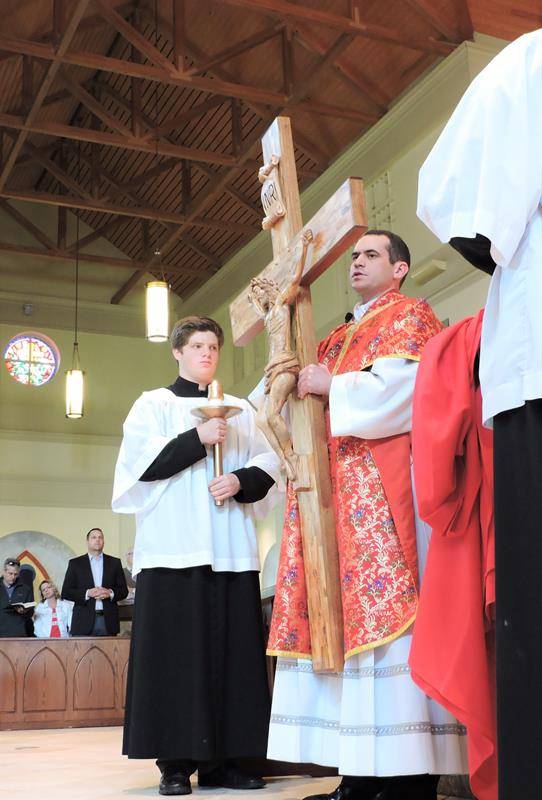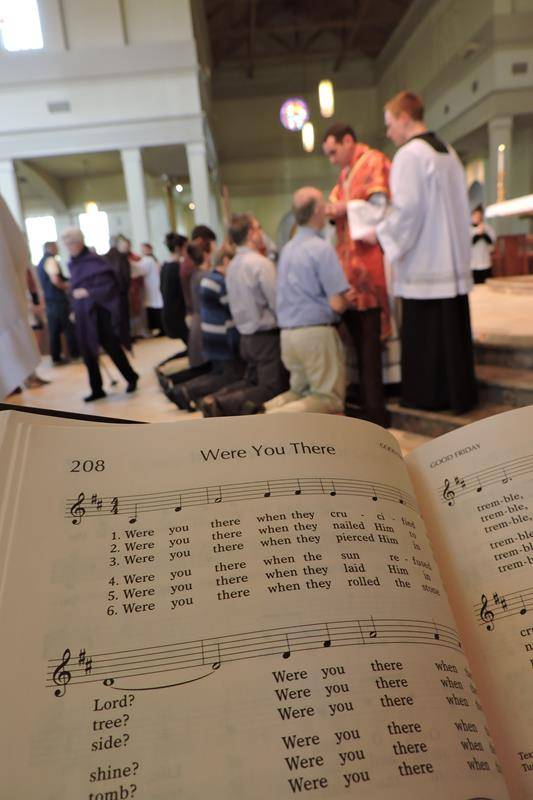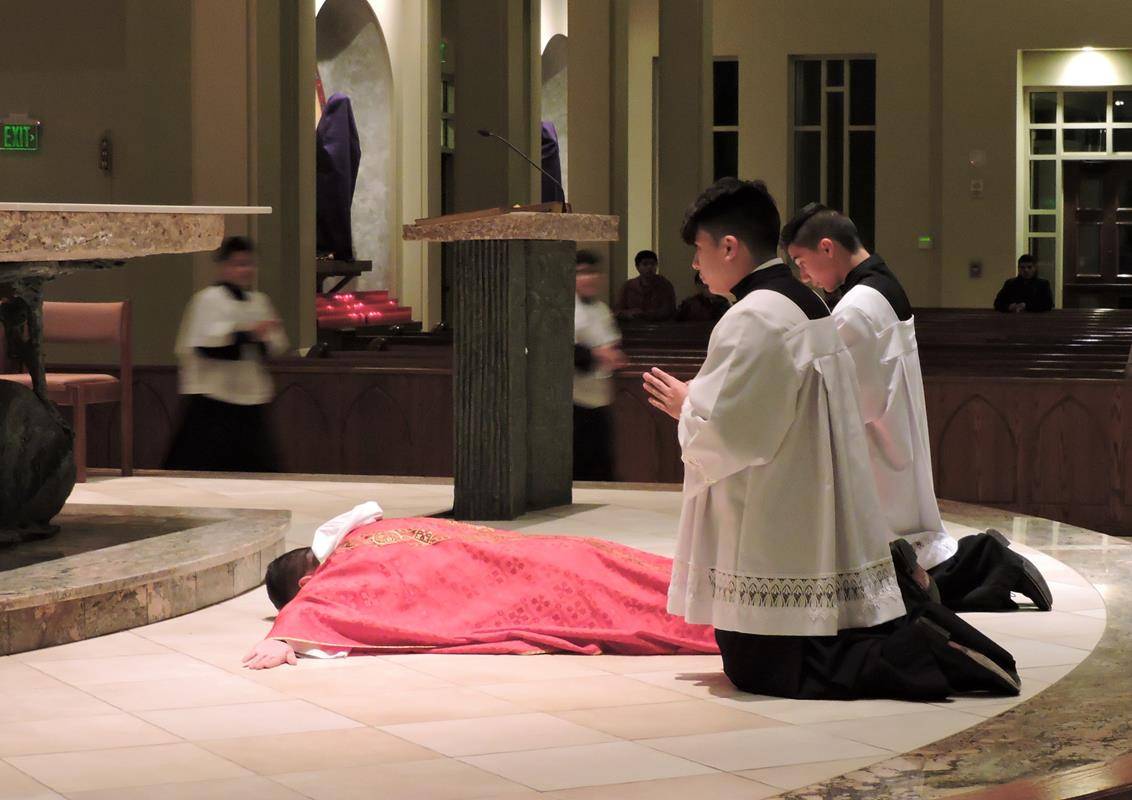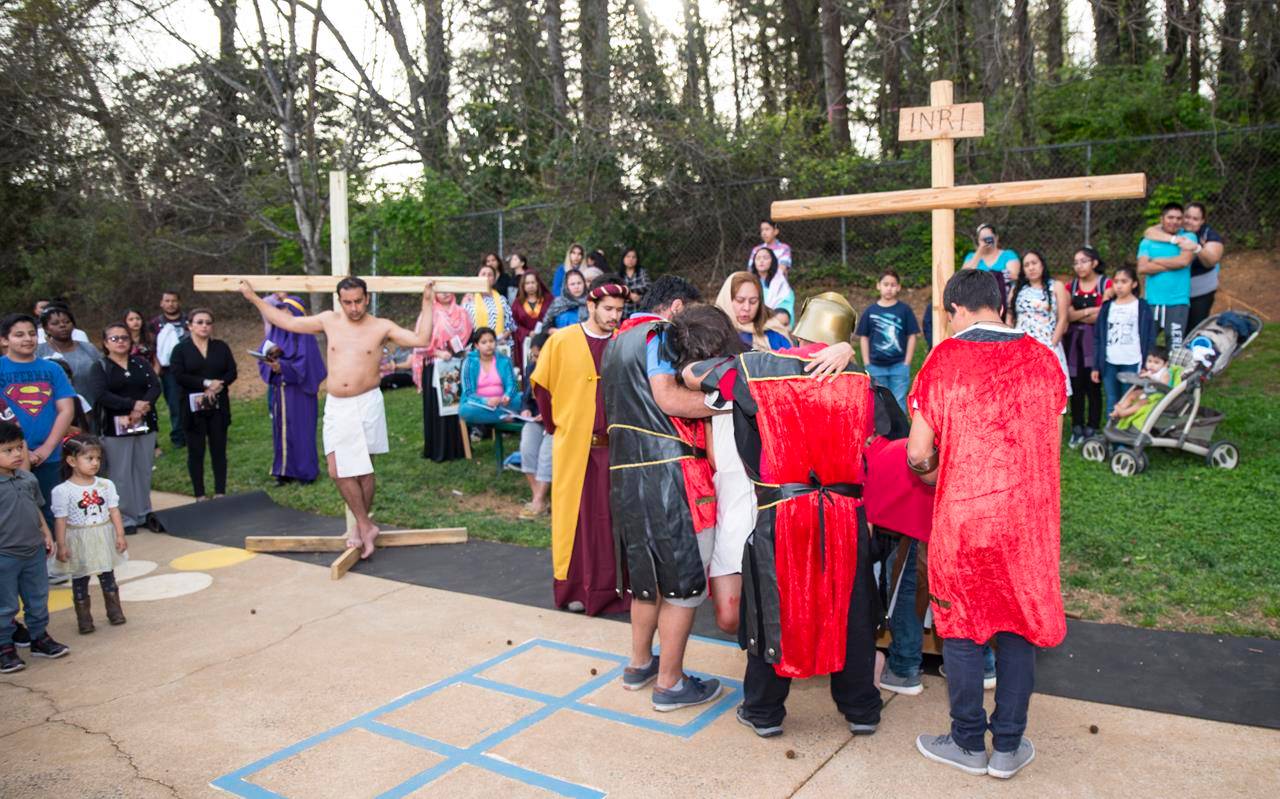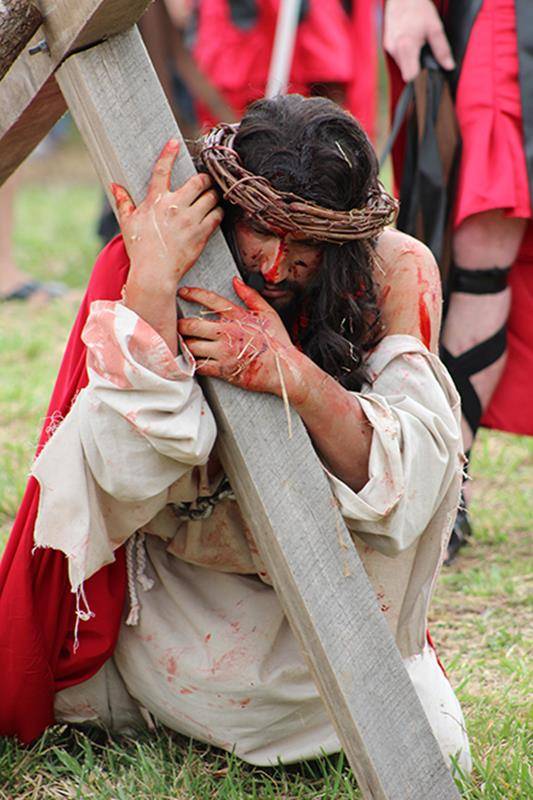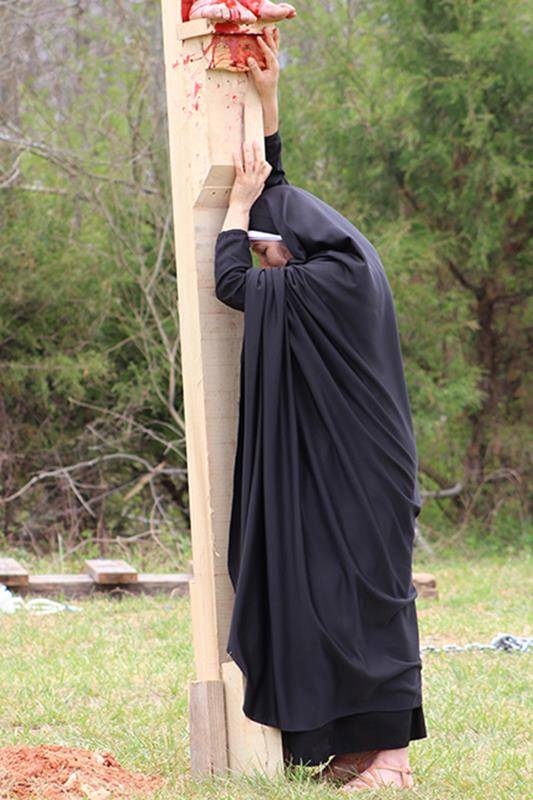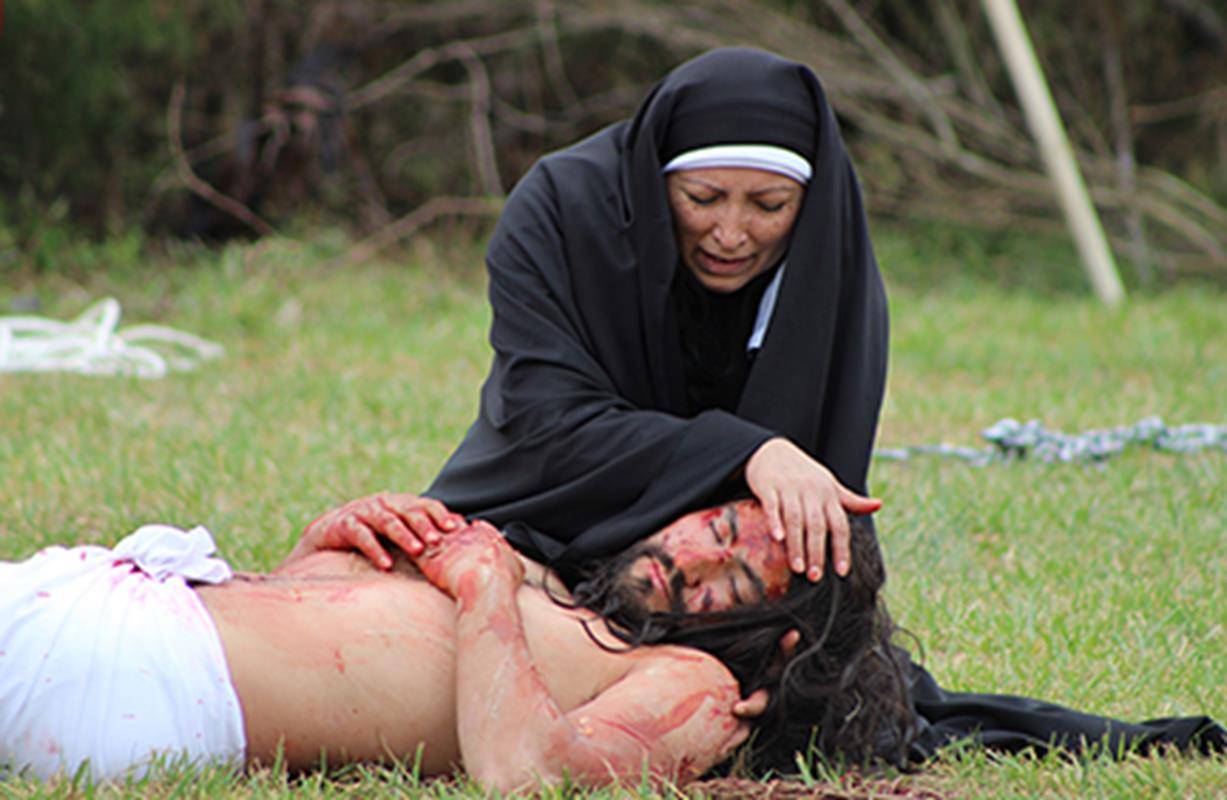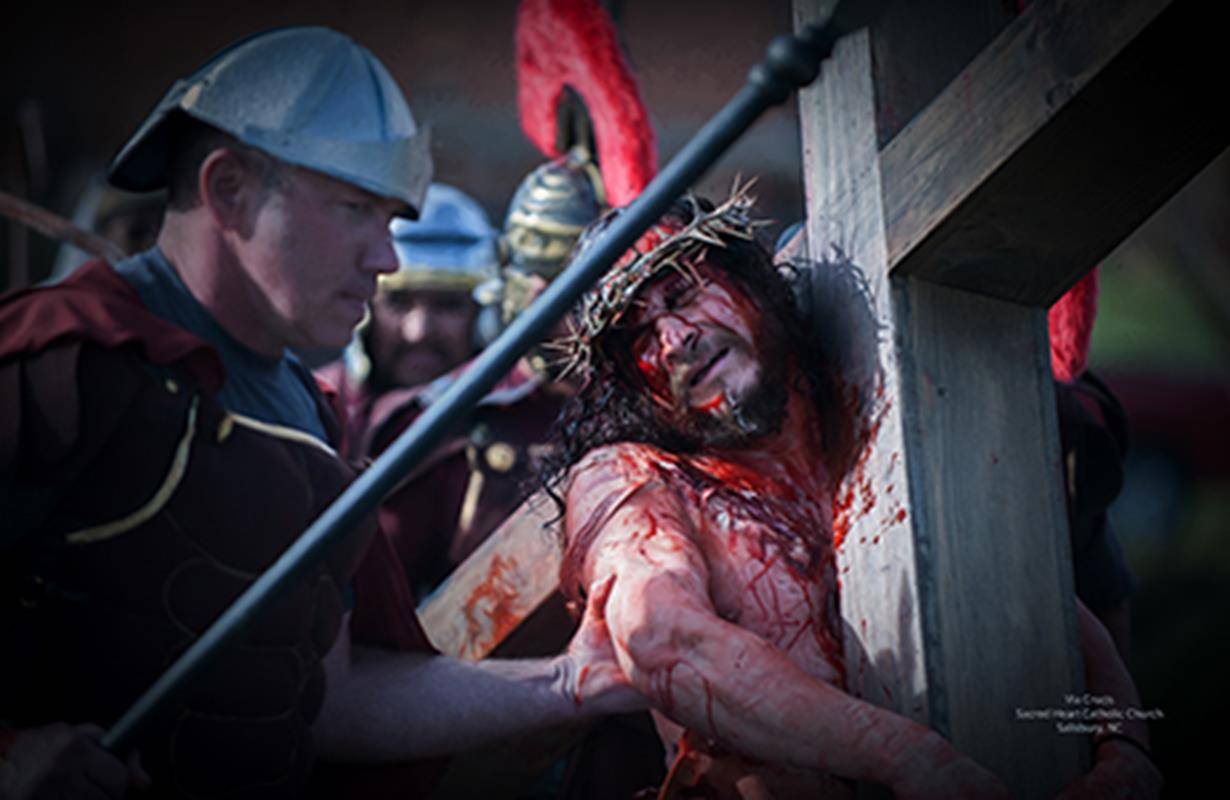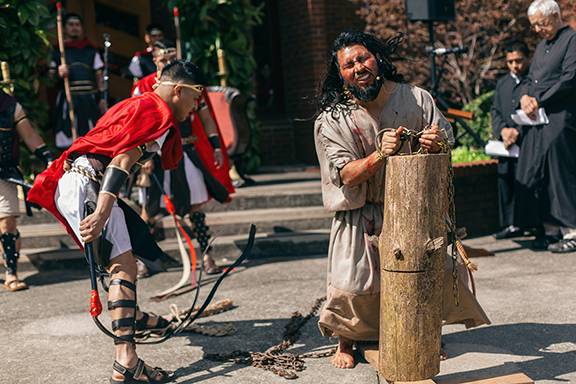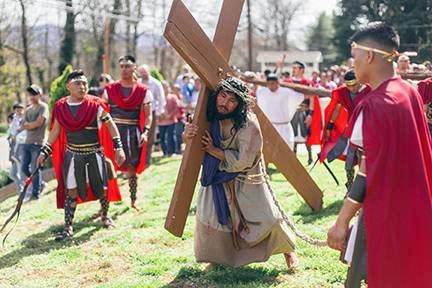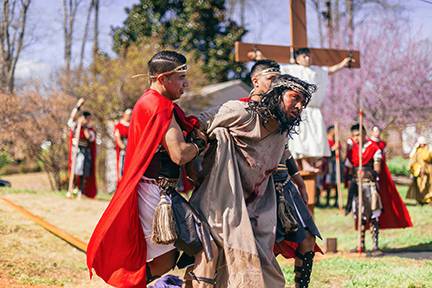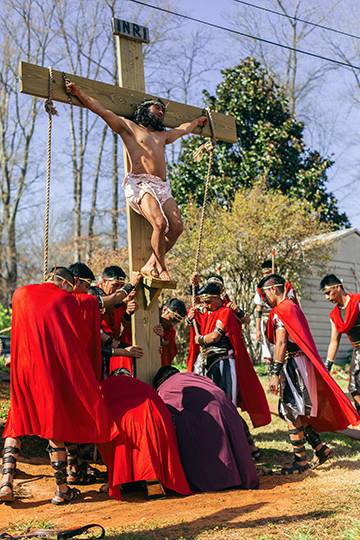Bishop Jugis commemorates Good Friday, venerates cross March 30
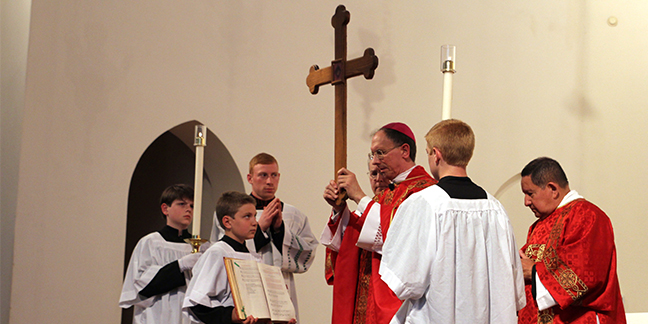 CHARLOTTE — Entering St. Patrick Cathedral in a silent procession to begin the Good Friday liturgy, Bishop Jugis lay prostrate before the sanctuary steps, humbling himself before God and in the presence of the faithful. This annual service held at 3 p.m., the hour Jesus Christ died on the cross, recalled the sacrifice of God’s only begotten Son for the salvation of souls.
CHARLOTTE — Entering St. Patrick Cathedral in a silent procession to begin the Good Friday liturgy, Bishop Jugis lay prostrate before the sanctuary steps, humbling himself before God and in the presence of the faithful. This annual service held at 3 p.m., the hour Jesus Christ died on the cross, recalled the sacrifice of God’s only begotten Son for the salvation of souls.
The March 30 liturgy began with the reading of the Passion narrated by Deacon Brian McNulty, with Deacon Carlos Medina as the voice, Bishop Jugis as Jesus, and the congregation responding as the crowd. They took those gathered on the tortuous journey Christ suffered from the Garden of Gethsemane through His crucifixion on Golgotha.
In his homily, Bishop Jugis asked, ““Why did Jesus choose this path of such extreme public humiliation?” He then recalled that in the first reading if the Solemn Liturgy of Good Friday from Isaiah 52:13-53-12, the prophet Isaiah expressed what the Word of God spoke to him, foretelling what would happen to the Messiah.
“This is a very important passage for understanding and interpreting the Passion of Jesus," Bishop Jugis explained. “In there He says He surrenders Himself to death and by that means He will take away the sins of many and win pardon for their offenses. By His suffering, by His death, He does win salvation and take away the sins of the whole world.”
“Such humiliation, such degradation that He experiences – all for love of us, all for love of you in fulfillment of what He had foretold speaking to the prophet Isaiah. Being dragged publicly, humiliatingly from the high priest to Pontius Pilate, the governor, in a public spectacle. Then being forced to hear the crowd say to Him, ‘Crucify Him! Crucify Him!’ And stand there alone as all of the crowds are shouting at Him. What humiliation."
“Being scourged, being crowned with thorns, carrying the instrument of His torture through the streets of Jerusalem. What a humiliation He was put through that He freely accepted, that He freely willed and wanted. And then, if that was not enough, undergoing the torture. He was tortured to death by His hanging on the cross, as if He were the worst of criminals.”
Bishop Jugis reminded those gathered that as Isaiah has foretold: "He (Jesus) will be counted among the wicked": “He will be counted as a wicked man, as an evil man. He accepts all of this, such public humiliation."
“When you think, though, how else could He show us the full extent of His love for us?” Bishop Jugis asked. “How else could He show that His love was truly genuine? He chooses to go through the most degrading, the most humiliating ordeal to prove how much He loves us. He loves us for our salvation.”
When the bystanders shout at Him, "Save yourself, come down off that cross," the bishop continued, “No, He wouldn’t, because it was because of love that He stayed on that cross."
Jesus' humiliation began at the Last Supper, the bishop said, when He washes the feet of His disciples. The act of washing another’s feet – especially by a Jewish rabbi – was considered degrading, and not even the lowest Jewish slave would be required to wash someone else’s feet.
“Yet here He is degrading Himself, humiliating Himself in the presence of His disciples,” Bishop Jugis noted.
That is why St. Peter says to Jesus, "You will never wash my feet," – in other words, "Jesus, this is completely beneath your dignity." It is a sign of how much Peter esteemed Jesus but also a sign that Peter did not understand what love demands, the bishop said.
“Would you be willing to do anything for the person you love? Would you be willing to be humiliated? Would you be willing to accept degradation for the persons you love?” Bishop Jugis asked. “Jesus says, ‘Yes, whatever it takes, whatever is required. I will do it all. I will accept it all. I will not turn back. I will not say no. I will accept it all – because of love, because I am doing it for you.’”
(In Scripture) Jesus says, "I came that they might have life and have it more abundantly."
“As we know, because of that extreme humiliation and degradation of Himself in front of everyone – the whole Jewish community, that emptying out of self, that gift on the cross, the complete pouring out of His love – comes abundant life for the Church, comes abundant life for every one of us.
“The abundant life of the Resurrection springs forth out of His death. It will continue to flow forth like a river of His self-giving, His self-humiliation until the end of time for each one of us. It is such an abundant life that keeps giving, that never is exhausted. So powerful, so potent,” Bishop Jugis continued.
The reading from Isaiah 53 also says, "It was our infirmities that He bore, our sufferings that He endured."
“He has already taken your infirmities, your sicknesses, your burdens, your sufferings upon Himself,” Bishop Jugis assured the faithful. “Today in honor of the Lord and His Good Friday Passion, it would be a good idea to once again give to Him, give to Christ all of the infirmities that you bear, all of the sufferings that you endure, all of your crosses. Give them to Jesus and unite them to Him and His cross."
“Are there any people who are sick or who are suffering that you know of? Today, in honor of the Lord’s Passion and the passion that they suffer, today would be a good day to visit them," he suggested.
“Let us ask our Lord Jesus, whom we love so much, to consecrate us once again this day in His love,” he concluded.
After the homily, Bishop Jugis, along with Father Christopher Roux, rector of St. Patrick Cathedral, and parochial vicars Father Richard Sutter and Father David McCanless took turns venerating the wooden cross containing a relic of the True Cross. The faithful then also came forward to the base of the sanctuary steps to venerate the cross, usually by giving it a tender kiss.
— SueAnn Howell, senior reporter



